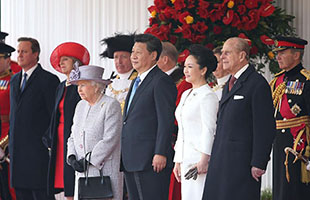Pentagon plan to shut Guantanamo prison to list alternative US sites
(Agencies) Updated: 2015-11-10 04:27WASHINGTON - The Pentagon is expected to unveil a long-awaited plan this week outlining how it would close the detention center at Guantanamo Bay, Cuba, despite fierce resistance in Congress to President Barack Obama's push to shutter the facility, officials say.
The plan would have four sections, one of which would detail potential U.S. alternatives for holding detainees, including the Centennial Correctional Facility in Colorado, one of the more promising locations, one U.S. official said.
A small team of Defense Department officials has surveyed facilities including the Consolidated Naval Brig in South Carolina and the Federal Correctional Complex in Florence, Colorado, the Pentagon says.
It also examined two facilities at Fort Leavenworth, Kansas: the U.S. Disciplinary Barracks and Midwest Joint Regional Corrections Facility.
Obama, who campaigned for office on a pledge to close the facility, views it as a damaging symbol of detainee abuse and detention without charge inherited from Republican President George W. Bush.
The House of Representatives last week overwhelmingly passed a defense bill that included measures that would bar Obama from closing Guantanamo before he leaves office in 2017. The Senate is expected to pass the same measure as soon as Tuesday.
Senator John McCain, the powerful Republican chairman of the Senate's top military committee, has publicly voiced his support for closing the facility, but sharply criticizes the Pentagon for failing to deliver its plan sooner.
Republican lawmakers are furious at the suggestion that detainees could end up on U.S. soil, and talk that Obama might use an executive order to close the prison. The Republican Party has been working to make the issue part of the 2016 presidential campaign.
Pentagon spokesman Captain Jeff Davis declined to specify when the plan would get to Congress, other than it would be "very soon."
But U.S. officials, requesting anonymity, said it was expected this week.
There are still 112 detainees at Guantanamo, of whom 53 are deemed eligible for transfer.
Reuters has reported that the plan would transfer eligible detainees to foreign countries; prosecute those who can be prosecuted; and move foreign terrorism suspects who cannot be prosecuted but are deemed too dangerous to release to the United States, an option now barred by law.
"It will address the issue of legislation change that's needed to proceed further," Davis told a Pentagon briefing.
Human rights activists object to the prospect of moving detainees to U.S. soil without formal charges being brought against them.






